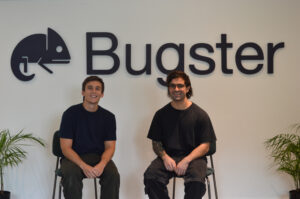
Por Marco Antúnez
June 24, 2023
Venture funds betting on technological innovation projects are now seeking stricter processes. According to a report from Sling Hub, Latin American startups secured a total of USD$253.2 million in funding rounds in May 2023. This represents a decrease of 81% compared to last year and a 42% decrease compared to April. Of this, USD$73.2 million was debt. There were only two Series A rounds. It sounds complicated, but it’s not that bad: there is light (and capital) at the end of the road.
Platanus Ventures, only three years old, is back in the ring with the upcoming closure of its call for an acceleration program. (The good news: the deadline has been extended from June 25 (this Sunday) to July 9.) This is one of the few private investment funds that still invest in very early stages — sometimes just an idea. A breath of fresh air in this more demanding framework for tech entrepreneurs.
You may be interested in: Platanus Ventures increases the number of startups it will invest in in 2022 to 15
The co-founder and partner of Platanus Ventures, Paula Enei, believes that “there are a lot of problems in Latin America that have not yet been solved. Technology has the potential to solve them”. Her approach is to employ her know-how to generate high economic and social impact value in the region.
“Given our experience, my partners and I thought we should invest in digital startups, with Spanish-speaking founders, where at least one of the founders knows how to program and is in charge of the technical development,” she explained to Contxto, the best known for the entreprenurial ecosystem as the founder of El Vaso Medio Lleno.
She is part of a solid team of tech entrepreneurs with Joaquín Stephens (co-founder), Jaime Bünzli (co-founder of Buda.com and CEO of Fintual), Natalia Fouillioux (acceleration manager) and Agustín Feuerhake Larrain (co-founder and CPO of Fintual), to name a few, who lead the work of the accelerator.
In its DNA there is a clear technical and specialized accent. That is, there is more of a techy Star Wars perspective (engineers who live in the action) than a Star Trek one (somewhat more contemplative theorists).
“The application has three requirements:
The program offers support to build a product, helps understand the dynamics of financing search, and prepares the entrepreneur to find the money to develop their project. It comes with an investment of USD$100,000 for 7% of equity. They only select 1% of the applicant projects.
The support concludes with a Demo Day, where the entrepreneur will showcase their business to investors. After the program, startups join their founders’ network, with access to angel investors, developers, and other partner companies.
You might also be interested in: Mexican startups stand out in the new batch of Platanus Ventures
This investment and acceleration project, which seeks positive impact without defining itself as an impact VC that uses the latest open-source web technologies. Hence, its vision is code focused —and open-source, above all. And its ability to call upon true aces of the digital sector.
Platanus Ventures defines itself as a technological startup accelerator and a venture capital fund focused on supporting early-stage digital companies with high growth potential. They have a brief but concise period of three months of development assisted by a mentorship, which has entrepreneurs from the region with a great deal of experience in ebusiness.
The profile of their selectees reveals that Platanus Ventures is a breeding ground for talent as an incubator. Paula Enei supports this idea: “From the amounts we contribute, you will see that we bet on companies at very early stages,” specifies the former director of Start-Up Chile.
“In some cases, they are working on other things when they apply. It’s not even so important to us if there’s an MVP, what’s important is the team and their ability to produce ideas, their potential. For us, this is above the market. It’s very unlikely that a good team will have a bad idea”.
Their central thesis, which is to have founding partner(s) with a technical profile distinguishes Platanus Ventures from other funds. “Typically, those who start a business come from commercial areas,” explains Enei. “They outsource the development of the product. They spend time and a lot of money outsourcing the MVP. They end up offering 2% or 5% of the company to a CTO. This conveys the little importance they give to technology”.
In summary: Platanus Ventures believes that if your mindset is not techy, then your chances of succeeding as a digital entrepreneur are very low. And it makes sense: the value proposition is not focused on construction, but only on architecture or theory. “My experience at Start-Up Chile allowed me to see this phenomenon in more than 500 companies. And just the ones that survived successfully were those that possessed this technical factor”, Enei specifies.
Past batches have AI, B2B, Fintech, PropTech, DevTools, SaaS, and even human resources solutions. If you look closely at each group, a common factor will become apparent: the accelerator believes there is greater market potential for those who solve painful problems in Latin American reality.
“For example,” says Enei, “we have invested in startups like Examedi, which carries out laboratory tests at home, which democratizes access to health and brings it to places where people do not have access”.
“Since we invest in young people, the curriculum level is not as relevant as their ability to clearly present their idea, its impact, its potential,” affirms Enei. This becomes an important reason for mentors to join this talent runway.
Jaime Arrieta Boetsch, entrepreneur and CEO of Buk, a human resources SaaS, provides mentorships and accompaniment to those selected for Platanus Ventures. If you are aware of the startup ecosystem, you will surely remember him for raising a frightening series A of USD$50 million, which gave his company a value of USD$417 million at the end of 2021.
“It’s very important to give them forums, financing, and advice,” explains the mentor. “The network that is built in Platanus is a great strength of the program. It’s interesting that, in addition to contributing your experience, as you see the projects grow you can even invest in them”. There’s another important value: here, the mentors are also potential capitalist partners who will contribute, additionally, strategic alliances.
Arrieta likes that it gives room to experiment in many ways among the participating startups. The biggest challenge, in his opinion, is for Platanus to consolidate with as much importance as Y Combinator currently has —without losing its technical essence and closeness to the teams it invests in.
“This versatility,” says Arrieta, “allows me to connect with ideas from creative people from all over Latin America who, in addition, are eager to change an environment, a reality, to take on the world, but without losing humility; they want to learn to pivot assuming that the error is there, which I find very stimulating, very beautiful”.
Among the problems that the CEO of Buk would like to see soon is the issue of sustainability —landed to the reality of Latam, of course. In his consideration, something could be done in energy matters. Or even more urgent: to reduce the social gap; for example, the opportunities of SMEs to compete in the current market; families who have fewer resources to democratize more access to certain services and products.
Helena Polyblank, co-founder of Mendel, a fintech that merges a corporate card and an expense control system, greatly enjoys participating in the impact produced by the startup ecosystem that gradually integrates into Platanus’ portfolio.
“I got to participate in the incubation and acceleration of Y Combinator and I think it’s an indispensable, overwhelming experience to transform the vision of the young people who participate,” says Polyblank.
The very personal and focused model of Platanus facilitates these mentors to get involved in an intrinsic way. “For me,” says the businessleader, “it’s a way of giving back value. Along the way, I learn a lot. That’s why you open your networks to them, you get involved, you invest in them; you pour yourself into it to the bone”.
Platanus Ventures arrived at an important moment for Helena, who felt ready to be an angel investor. “As a woman,” she says, “it was very complicated; it was difficult to establish that relationship with entrepreneurs, for them to seek me out to collaborate with them. That’s when Platanus Ventures gave me the opportunity to prove myself in this new version of me”.
The result? Polyblank has already invested in six companies from past batches. Yes, an unwritten added value in the program, but it can happen.
The businesswoman celebrates the wealth of proposals and problems addressed by the entrepreneurs who are now part of the portfolio. She hopes to soon see more ideas around education, for example. “What’s most exciting is seeing so much passion and energy; I thought that by contributing my experience I would give what I have received; but, again, they have given me a lot in this time. And it’s only been two years for me!”
The enthusiasm Helena communicates is contagious. It reflects, among other things, something that will be definitive for an applicant: the possibility of an idea going from being a dream to a fact with a set of investors, strategic allies, and ebusiness experts who will back up the startup and its team. In other words: a real opportunity to create a life project that has an impact on the region.

Por Stiven Cartagena
September 15, 2025
December 4, 2024
November 20, 2024